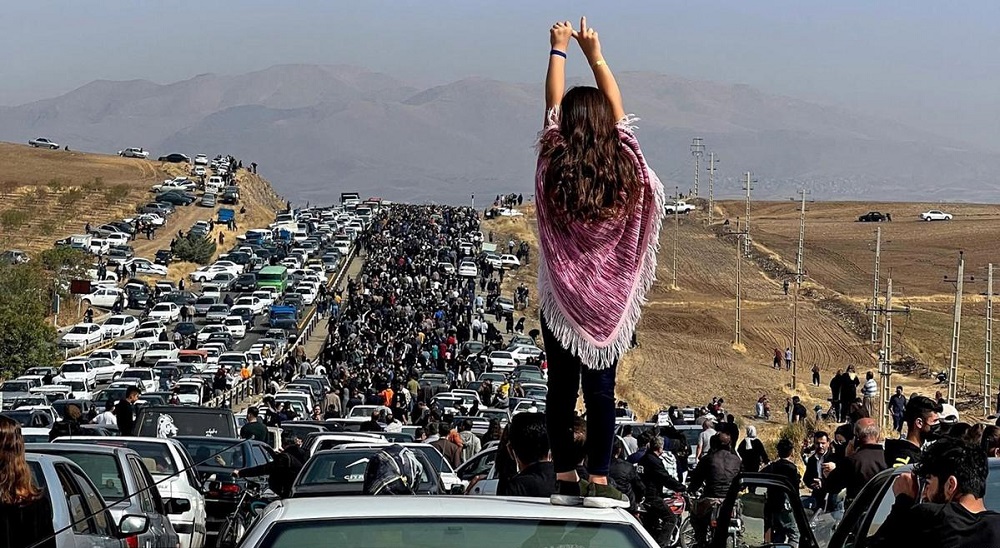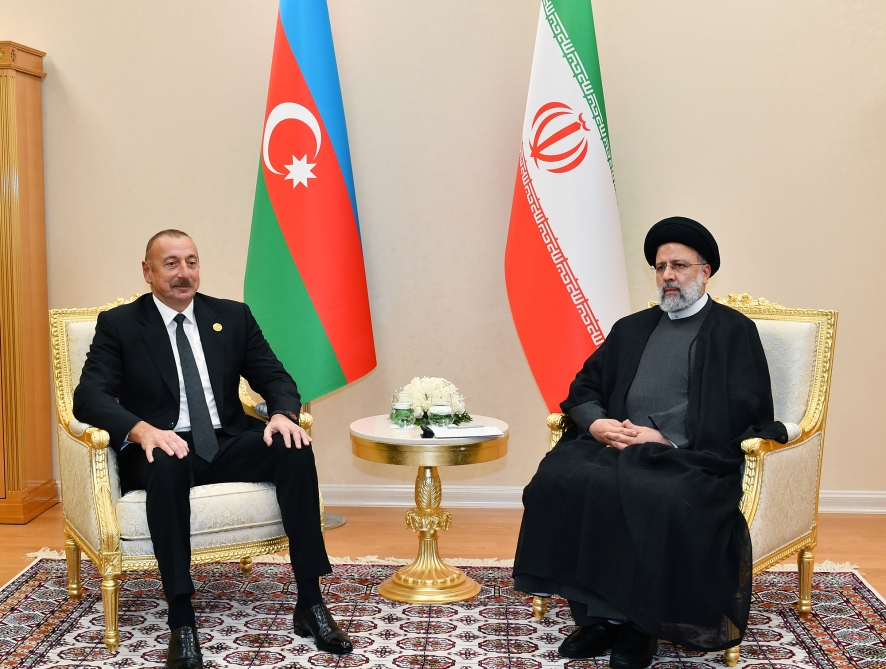What has Iran achieved by causing tension with Azerbaijan? – Comment from Baku
Tension between Iran and Azerbaijan
Iranian Foreign Minister Hossein Amir Abdollahian said that his country would not regulate relations with Armenia and Azerbaijan at the expense of either country. According to experts of the South Caucasus Analytical Center, Iran’s primary goal with respect to Azerbaijan is the destruction of the Tel Aviv-Ankara-Baku triangle in the region, but now it is preoccupied by internal strife.
- Ex-Foreign Minister of Azerbaijan: “The resumption of hostilities is becoming more likely”
- “It’s time to stop Armenian-Russian military cooperation.” Opinion
- North Ossetian blogger reveals secrets of FSB after escaping to America
“Tehran considers Armenia and Azerbaijan as two neighbors of Iran, and does not give preference to either nation,” Abdollahian said.
“The priority for Iran is relations with all neighbors. Tehran has no plans in the territory of its neighbors, including Azerbaijan. Iran will react to any geopolitical changes in the region,” Farsnews quotes Abdollahian as saying.
Why does Iran need tension?
According to the CSSC, after Ibrahim Raisi came to power in Iran relations between Iran and Azerbaijan went sour. Iran has called Armenia’s borders its “red line” and has twice conducted military exercises on the border with Azerbaijan.
“But there is no real basis to the accusations made by Tehran. In the Prague and Sochi meetings, Baku and Yerevan declared the recognition of the territorial integrity, sovereignty and inviolability of each other’s borders. And at the beginning of this year, Baku and Tehran agreed to build a corridor between the western regions of Azerbaijan and the Nakhichevan Autonomous Republic through Iran.
Iran’s main goal in creating artificial tension is to increase its authority in the region, taking advantage of the weakening of Russia. Tehran is also trying to prevent the Zangezur corridor construction project and weaken the Ankara-Tel-Aviv-Baku triangle,” Azerbaijani political scientists noted.
How did Baku respond?
Iran got the opposite result.
“Baku has seized strategic heights on the conditional border with Armenia and has a positional advantage. At present, the Azerbaijani Armed Forces are keeping strategic roads linking Armenia with Iran under visual control.
As for the Zangezur corridor, Armenia assumed this obligation by signing the tripartite statement dated November 10, 2020. For this reason, Baku did not retreat from its position along the Zangezur corridor, despite pressure from its southern neighbor. On the contrary, this issue was included in official documents of international organizations,” analysts say.
International response to Iran’s actions
In response to military exercises by the Iranian army, Azerbaijani special forces conducted exercises on the border with Iran. When tensions were at their peak, Turkish Foreign Minister Mevlut Cavusoglu called his Iranian counterpart, while the Pakistani Prime Minister and the Israeli Defense Minister contacted their counterparts in Azerbaijan.
CSSC recalls that Cavusoglu told Abdollahian about the friendly relations of his country with Azerbaijan, and the head of the Israeli Defense Ministry discussed the development of military relations with his Azerbaijani counterpart. US State Department spokesman Ned Price announced support for Azerbaijan in the face of Iran’s threats. The head of the General Staff of the Azerbaijani Armed Forces, Kerim Veliyev, held meetings with the military attache of the US Embassy in Baku and the rear admiral of NATO forces.
Exposing a spy network
“Azerbaijani intelligence exposed a network of local citizens operating in the country, performing special tasks for Tehran.
The hacker group Black Rewards distributed documents according to which, in January and March 2022, $47,158 and 75,000 euros were sent from Iran to members of this spy network. The network also worked in the Nakhichevan Autonomous Republic and received 45,083 euros from Iran.
In conjunction with Azerbaijani intelligence, Georgia carried out an operation to expose the Iranian network within Georgia. Azerbaijan had repeatedly warned of the activity of this network in Georgia,” Azerbaijani political scientists noted.
What has Iran achieved?
Iran’s destructive policy has led to the European Union adopting a new package of sanctions against Iran, and Benjamin Netanyahu returned to power in Israel:
“Azerbaijan announced the opening of an embassy in Tel Aviv and an office in Palestine. With the support of Israel a cybersecurity center is being created in Azerbaijan. The Ministry of Foreign Affairs of Israel, as well as the authoritative Jewish organizations AIPAC and AJC, operating in the United States, called the decision to open an embassy in Israel “historic”.
Speaking at the summit of the Organization of Turkic States in Samarkand, Azerbaijani President Ilham Aliyev stated that he is attentive to the rights of Turkic-speaking peoples, including Azerbaijanis living in third countries.
Failing to achieve its goals, Iran began to send positive signals to Baku. Ali Akbar Vilayati, advisor to the Supreme Spiritual Leader of Iran, talked about this. He stated that Iran does not intend to attack its neighbors, and if Azerbaijan faces an external threat, Iran will be by its side.
Thus Iran did not gain anything from this tension, on the contrary events took place within the country itself which do not bode well for the Tehran authorities in the near future.”
Tension between Iran and Azerbaijan






















